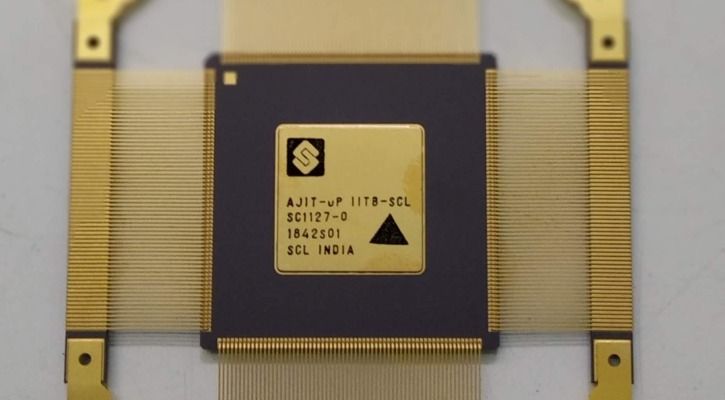India is currently in the middle of an electronics boom that's steadily picking up pace. In the future, we're going to need to make our own processors, in order to offset production costs.
And IIT Bombay may have just started us on that path to self-sufficiency.

IMAGE COURTESY: PRABOT/REDDIT
The Institute has just debuted the country's first indigenously-produced microprocessor for SPARC ISA architecture. AJIT as they call it (no, that acronym doesn't stand for anything) was entirely conceptualised, designed, developed, and manufactured right here in India.
To be clear, India recently had its first indigenously-developed open-source processor in the form of Shakti. That was instead based on RISC-V architecture, and it was developed in collaboration with semiconductor tool design company Bluespec. The other main difference between the two is that Shakti is smaller and geared towards smartphones and IoT devices. Ajit instead is aimed at larger systems like robots, automation systems, appliances, and in the future perhaps even servers and workstations.
Most importantly though, the plan is to eventually put AJIT into India's satellites.
"We are planning to use AJIT in the receivers being developed for NAVIC or IRNNS (The Indian Regional Navigation Satellite System), an indigenous navigation system for the Indian subcontinent," said one of the processor's designers in a Reddit AMA (ask me anything).
"On the government's part, MeitY has extended its funding to enhance the processor and deploy it in government-initiated projects. SAMEER (Society for Applied Microwave Electronics Engineering & Research), an independent lab under MeitY, Government of India is planning to use AJIT in the receivers being developed for NAVIC or IRNNS"

ONE OF THE INRSS SATELLITES, WHICH AJIT COULD POWER IN THE NEAR FUTURE - ISRO
AJIT is currently able to run one instruction per clock cycle and at speeds between 70-120MHz, but they expect to achieve 400-500 MHz clock speeds in the next upgrade. It's built on a 180nm technology, though that will eventually be bumped up to 65nm.
The thing is, developing a microprocessor isn't just expensive, it's also really tricky. So hats off to IIT Bombay for achieving this. But on top of that, they've also managed to pull off a final design that's really cheap. The researchers expect that, once they're able to manufacture it in bulk, AJIT will cost as little as Rs 100. And that should happen in just the next year or two, the designer says.
Source: https://www.indiatimes.com/technology/news/meet-ajit-1st-entirely-made-in-india-chip-by-iit-bombay-and-it-will-power-our-satellites-365874.html (Accessed on April 24, 2019)


